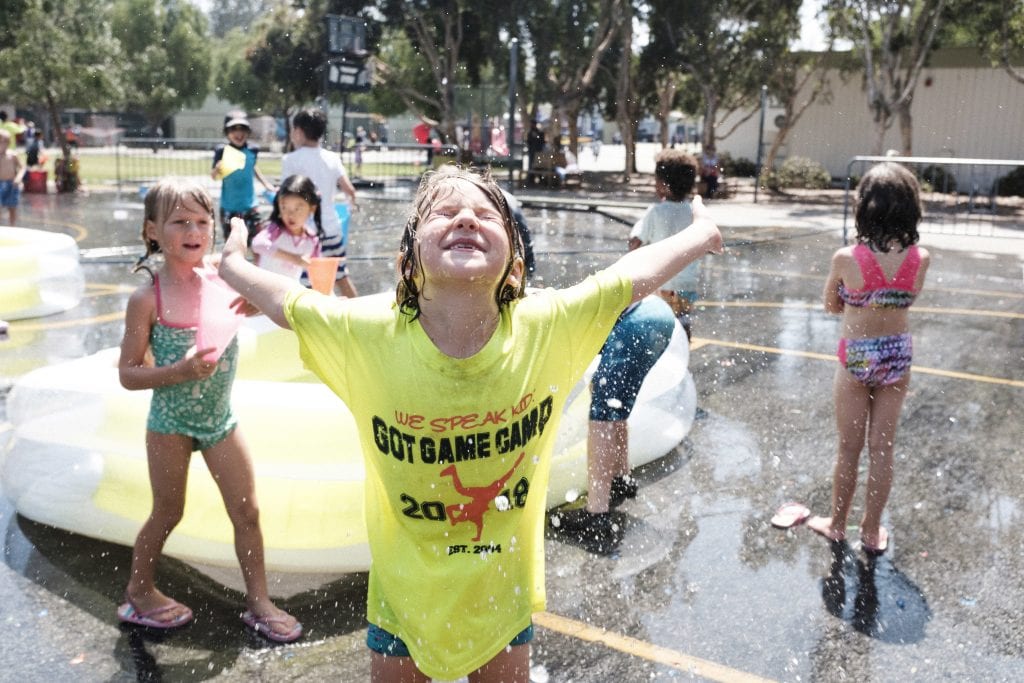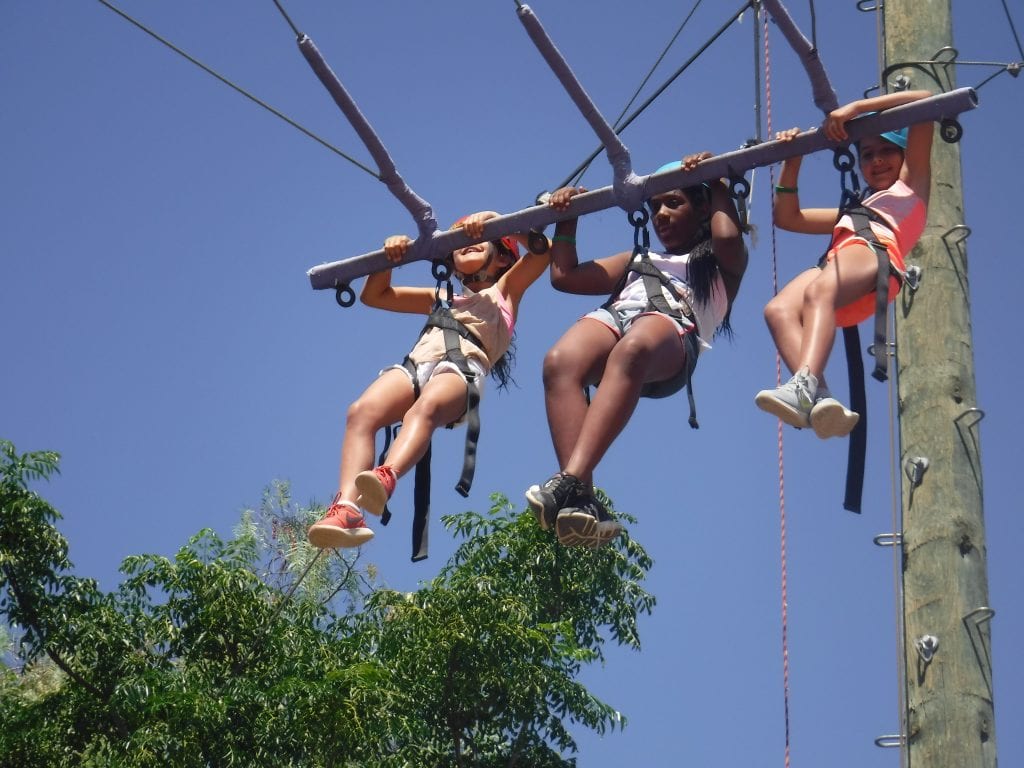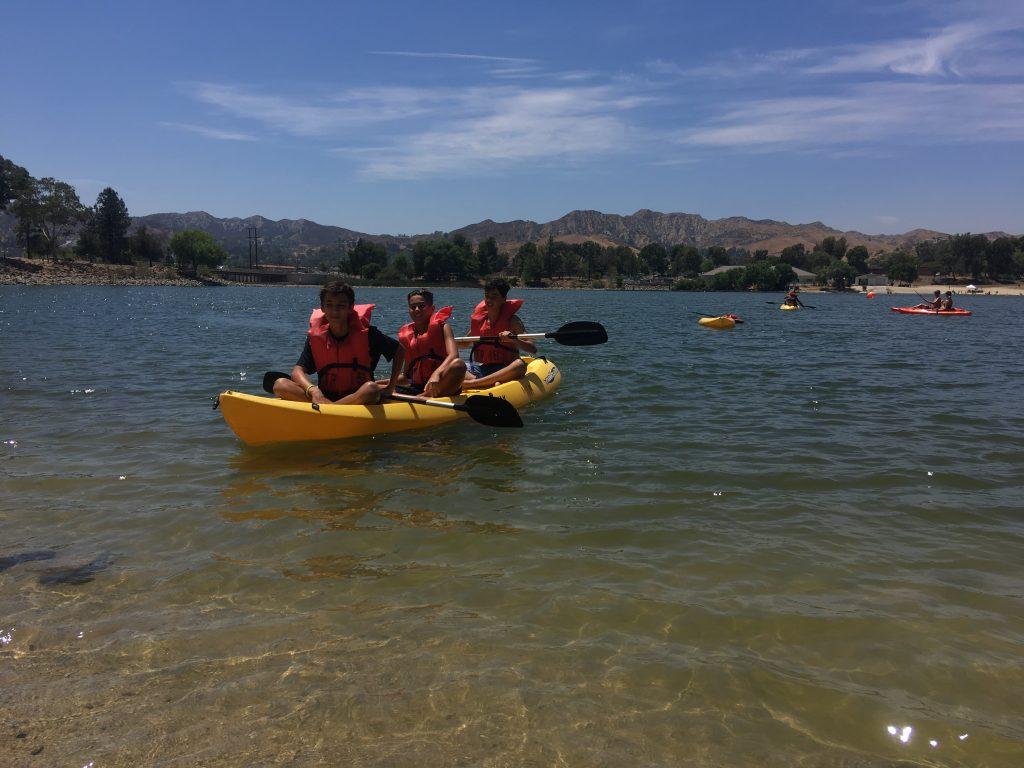
“Summer is expensive,” says Korey Kalman, owner of Got Game Sports, an L.A. day camp he started in 2011. He isn’t just stating the obvious. While as parents we might start our summer-camp planning with visions of our children leaping playfully in the sun and creating magical memories while learning and growing, those dreams dissipate as soon as we start to realize how much those visions might cost.
But there’s good news, dreamers: While Kalman’s assessment of summer’s financial toll is on the money, camp directors are responding to families’ concerns about affordability and other factors and are finding ways to make their camps more accessible. We are awash in ways to get more bang for your summer-camp buck, and you don’t have to dip into the college fund so that your child can learn to build a robot or visit a water park. Also, by summer’s end, no matter what you spent, your child will have developed life skills, gotten dirty, navigated the world of summer friendships and, most importantly, had fun.
Planning and Projections
Let’s be honest: Many of us struggle with commitment when it comes to nailing down summer camp. But early (and we do mean early) planning, scheming and budgeting provide the best and most surefire ways to stretch camp dollars.
“There’s no rule of thumb when it comes to how much you should spend,” says Alaina Bernstein, an accountant with Bernstein & Associates, CPAs, in West Hills. “It’s about not getting too emotional and fitting within your budget.”
Start by looking at your budget from a tax perspective. The current federal childcare credit can be helpful but has limits, Bernstein says. For instance, you can claim up to $3,000 worth of expenses (including camp expenses) for one child, but the maximum credit you can receive against those expenses is $2,100 – and that depends on your income. The credit is also designed to help working parents, so both have to be employed to claim it.
Another option is a Dependent Care Flexible Spending Account, an employer-sponsored pre-tax plan that allows you to set aside monies before taxes are taken out of your paycheck (so your taxable income is lower). Oftentimes, those funds are already earmarked for after-school care, but they can also apply to camp fees. Again, there are limitations. You are only eligible if your children are younger than 13.
Bernstein suggests setting up a savings account where you can tuck away a set monthly amount throughout the year. That way, you feel the pain in smaller increments each month, rather than as a chunk of cash when it’s time to pony up for camp.
“I always recommend to my clients with expenses that come up once per year to set money aside each month in a separate account,” Bernstein says. It’s even better, she adds, if you can find an account that pays interest and doesn’t charge fees. Check with your accountant or financial advisor to run the numbers to determine which options are best for you.

Do your research and don’t be shy about asking the camp director for discounts or about financing options. “It’s always worth a shot,” she says.
Whether or not you need financial assistance, Bernstein suggests getting your campers involved in camp budget planning to teach financial literacy – especially if your child is keyed in on a camp that comes at a premium price. “There are other ways to save,” she says. “Personal fundraisers, or have kids do chores to help pay for camp.”
Sounds Like a Plan
Are you a “plan a year ahead” type of parent? Or do you wait until the last minute? Camps open up their enrollment early and make it worth your while to start thinking about summer while you’re still putting away the holiday decorations. “The more you plan ahead, the better the price you’re going to get,” says Mike Stillson, executive director of Valley Trails Camp in Tarzana and Santa Clarita. Several camps now feature super-early-bird discounts for parents who can plop down payments in late January or early February. You can save as much as $50 or more per camp week by getting far ahead of the curve.
The majority of parents, however, fall into the next category: They see the warm buds of spring and start thinking, “What the heck are we doing this summer?” The savings can still be substantial at most camps if you book by mid-March, and you have the peace of mind that you’re locked in and paid up.
But what about those of us who are scared to commit? Camp directors have seen the need for flexibility and have begun minimizing – or even in some cases, eliminating – fees for those who book a week and then need to make a switch. “This year, we eliminated transfer fees,” says Summer Erickson, spokesperson for Galileo, which offers 40 programs at 26 locations throughout L.A. “That’s a pain point for our families. We wanted to make it less stressful. There’s been great response to it.” At Galileo, a premium camp that can cost $385 to $475 per week, parents can change weeks up to the Friday before their camper’s start day.

Other camps are taking a similar tack. “Summer research starts early,” says Kalman of Got Game Sports, which offers super-early-bird and early-bird discounts. “We want to reward and encourage those parents.” He adds that camp weeks with popular field trips, such as outings to a Dodgers game or Raging Waters, can fill up quickly – another reason to book as early as possible. But Got Game Sports also allows parents to change weeks if plans change. “Look at the camp’s refund and cancellation policy when you book,” Kalman advises. “That’s really important.”
You’ll find almost as many types of discounts as there are SoCal camps, so let your research be your guide. Most camps offer at least a 5- to 10-percent discount for siblings. Stillson at Valley Trails Camp recommends getting a group of families together to take advantage of its 5-percent discount for groups of eight or more campers.
One of the most overlooked discounts is for referrals, especially since campers often want to sign up with friends. At Galileo, if you refer a friend, the new family gets a $25 to $100 discount on the camp week (depending on location), and the referring family receives a gift card for the in-kind amount. “We’re trying to infuse more joy into the summer-planning process,” says Erickson. “And we want to reward families for their support.”
Several camps offer scholarship programs, too, and the American Camp Association suggests checking with your church or synagogue and other civic organizations, which may have a fund for summer programs that can be applied to camp tuition.
Extras! Extras!
You’ve planned, you’ve picked and you’re about to pay when here comes another piece of the camp equation: logistics and extras. Maybe you decided on a camp with affordable rates, but then find out the field trips cost extra, there is no before- or after-camp care, and lunches are expensive, or worse, not offered.
Before you book, ask what’s included. Got Game Sports rolls the costs of almost all of its field trips into the weekly tuition price, and offers hot lunches for $6 per day.
At Galileo, the primary add-ons are meals and after care. For lunch, Erickson says parents often feel that the added expense is worth it. “It’s a really nice break to not have to pack lunch over the summer,” she says. And Galileo’s after-care program is discounted 30 percent if you book for more than one week.
Extras such as piano or swim lessons can be worth it, too, especially if those have been on your parental to-do list or you want to introduce the kids to an activity. West Hollywood’s Center for Early Education (CEE) campus is closed for renovations this summer but traditionally has offered private piano lessons along with its camp program – and is considering adding other instrumental classes, too. “It’s worth some extra money if this is what you want to expose them to anyway,” says Susan McCarthy, director of CEE’s Summer Institute for Kids.

Camps that offer a variety of activities, such as Got Game Sports, can also be a conduit to understanding what your child responds to before you invest in a specialty camp. “Like with robotics or dance, does your child really want to do that for eight hours?” asks Kalman, adding that with younger kids, especially elementary age, “they’re interested in everything.”
At Valley Trails Camp, transportation is included for both camp locations and lunch is included at the Santa Clarita location (it’s $6 per day at the Tarzana camp). But Stillson advises parents looking for ways to save to remember that the summer experience should be special. “You never want to skimp when it comes to a camp program,” he says. “The camp experience is different than daycare. We’re outside, teaching life skills.”
The Important Stuff
So, when it comes down to it, what makes a camp worth it?
“Higher price doesn’t always mean higher quality,” Kalman says. “Reviews are really important. Do your due diligence.”
Most directors agree that their camps’ biggest asset is also the biggest expenditure: staffing. “That’s why camps cost what they do,” says Stillson. While the focus is on training and certifications because, as Stillson says, “it’s got to be safe,” the individuals make the program. “It’s 100 percent the staff,” he says. “They come back year after year because they want to make a difference in a camper’s life.”
The good news is that you don’t have to spend a fortune on making sure your kids have a safe and activity-filled summer. Call that church or community college you drive by every day to see if they offer a program, and check with your city parks and recreation department.
If you’re a member of one of the 26 YMCA of Metropolitan Los Angeles branches (or even if you’re not), you can take advantage of the Y’s numerous ACA-accredited affordable camp programs throughout the Southland. At many locations, the camps are open from 7 a.m. to 6 p.m. with after care, healthy lunches or snacks, swim lessons or field trips at no extra cost, says Jennifer Sullivan, executive director of the San Pedro and Peninsula YMCA.
Several branches also offer specialty camps geared toward STEM/science curricula and other intensive themes. But most parents, Sullivan says, are primarily focused on finding a safe, clean place, experienced staff and a structured day. “They look to make sure their kid is tired at the end of the day,” she says. “We’re here to help parents out in that way, to do what they want their kids to experience but can’t because they’re working.”
Carolyn Graham is a freelance writer and mom to two summer camp veterans.


























